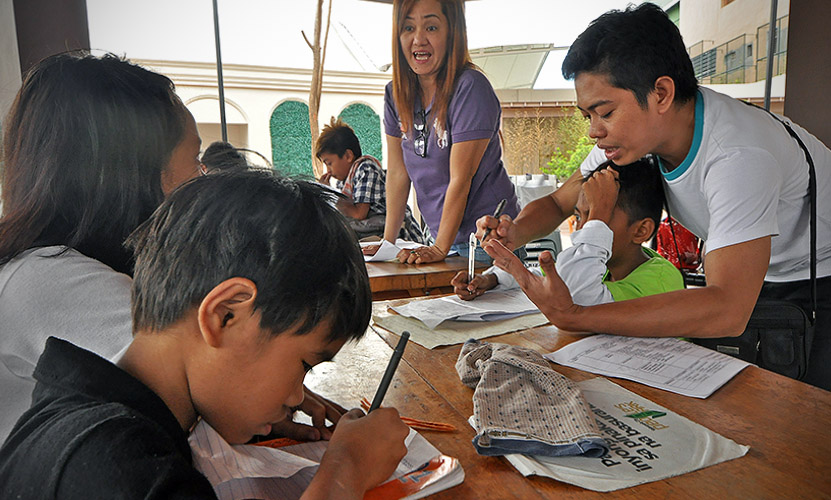The Senate has approved on third and final reading a bill that seeks to institutionalize the Alternative Learning System (ALS) and establish an ALS Community Learning Center (CLC) in every city and municipality in the country.

According to Senator Win Gatchalian, principal author of the Alternative Learning System Act, putting up ALS CLCs in every city and municipality will give more Filipinos outside the formal school system a second chance to complete their basic education.
Gatchalian added that the ALS Act also reflects the need for continued education amid the COVID-19 pandemic. He pointed out that the bill utilizes a mix of learning modalities required under the ‘new normal’ such as digital learning, modular instruction, and radio and television-based instruction to help ensure the safety of learners.
ALS is the Department of Education’s (DepEd) parallel learning system for those who cannot access formal education due to economic, geographic, political, cultural, and social barriers, including persons with disabilities, indigenous peoples, children in conflict with the law, persons deprived of liberty, migrant workers, and other marginalized sectors of the society.
In comparison to the formal education system, ALS is a non-formal education that happens outside the classroom, community-based, usually conducted at community learning centers, barangay multi-purpose halls or at home at an agreed schedule and venue between the learners and learning facilitators for free.
“The ALS Act is, in its very essence, a bill about second chances. It is a bill about providing opportunities for a better life to our fellow Filipinos who have fallen into hard times,” said Gatchalian, Chairman of the Senate Committee on Basic Education Arts and Culture.
According to the May 2018 Philippines Education Note by the World Bank, at least 24 million Filipinos aged 15 and above have not completed basic education. The same report said that an additional 2.4 million children aged 5 to 14 were not in school.
“Kung bawat lungsod o munisipyo sa bansa ay magkakaroon ng ALS Community Learning Center, mas madali nating maaabot at mabibigyan ng dekalidad na edukasyon ang bawat Pilipinong napagkaitan ng pagkakataong tapusin ang kanilang pag-aaral,” the senator said.
“Malaking hamon ito para sa lahat ng stakeholders lalo na’t pinaghahandaan natin ngayon ang tinatawag na new normal sa muling pagbubukas ng eskwela,” he added.
In 2019, there were 738,929 learners enrolled in ALS.
Aside from establishing ALS CLCs in every city and municipality, the ALS Act establishes the Bureau of Alternative Education (BAE), which will serve as the focal office for the implementation of ALS. In 2016, the Bureau of Alternative Learning System was dissolved and its functions were integrated in other bureaus of the DepEd.
The proposed measure also strengthens the ALS Teacher Program to address the shortage of ALS teachers and facilitators. The bill mandates the Department of Budget and Management (DBM) and the Civil Service Commission (CSC) to create teaching positions for ALS teachers. There were 10,214 ALS learning facilitators for 2019, which include mobile teachers, District ALS coordinators, and literacy volunteers among others.


